Cleaver Magazine Reviews Books In Translation
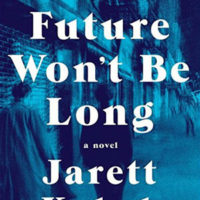
THE FUTURE WON’T BE LONG, a novel by Jarett Kobek, reviewed by Jordan A. Rothacker
The New York City of the decade in which The Future Won’t Be Long is set is a city in transition, sloughing off the dirty skin of a seriously fertile artistic period to eventually reveal a heartless skeleton scraped clean by Mayor Giuliani and the NYPD by the book’s end. From the start, the city is riveting for Baby, who describes how he “wandered New York, its manic energy seeping into my bones. The pavement vibrated, resonating with billions of earlier footsteps, centuries of people making their way, the city alive with the irregular heartbeat of its million cars and ...
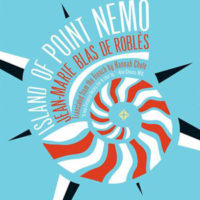
ISLAND OF POINT NEMO, a novel by Jean-Marie Blas de Roblès, reviewed by Rachel R. Taube
Island of Point Nemo is a fast-moving adventure story featuring murderers, romance, and preternatural turns. But dig further into those turns, and the novel is ultimately a eulogy to books, both as physical objects and as containers for fiction. Written by Jean-Marie Blas de Roblès and newly translated from French by Hannah Chute, Island of Point Nemo features suspenseful plotlines that intertwine in such a way as to make the reader question the natures of fiction, reality, and history ...
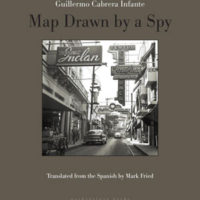
MAP DRAWN BY A SPY, a novel by Guillermo Cabrera Infante, reviewed by reviewed by Jacqueline Kharouf
Posthumous novels are both a joy and, sometimes, a let-down. Left behind by an author whose polished work stands as a testament to the full capacity of his or her mind, the words on the page surface at first like an extension from the past. This one last bit of evidence left for us to find. The posthumous novel should be examined and praised as a rare object—hidden in a vault, locked in an old suitcase, tucked into an envelope—and given a small bit of license for being not quite the full body of work its author intended ...
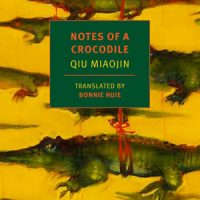
NOTES OF A CROCODILE, a novel by Qiu Miaojin, reviewed by Ryan K. Strader
Lazi argues that mapping secrets and pain can be a matter of life and death, and Qiu’s suicide seems to attest to that. Considering the stresses of our present age, where identities and ideologies are masking and unmasking, the intrapersonal mapping of identity is even more significant for artists that would influence culture. That might be another way that Notes of a Crocodile is oddly predictive; or, its tendency to speak so clearly to our global present might mean that Lazi—and Qiu’s—struggle for self-identification is timeless. In either case, Notes of a Crocodile is an important addition to literature that ...
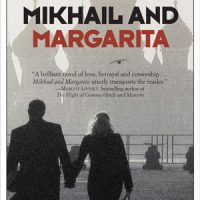
MIKHAIL AND MARGARITA, a novel by Julie Lekstrom Himes, reviewed by Ryan K. Strader
Julie Lekstrom Himes’ novel, Mikhail and Margarita, imagines the love affair that might have inspired The Master and Margarita. This is Himes’ first novel, following the publication of several short stories and essays. Himes is a physician in Massachusetts; interestingly, Bulgakov was also a physician. In an interview with the literary website Eye 94, Himes describes reading Bulgakov’s collection A Country Doctor’s Notebook (reflections on his early years as a doctor) and identifying with “the fear and regret and self-questioning” of a young doctor. Identifying with Bulgakov’s “voice” as a doctor encouraged Himes to try writing from his perspective, to ...
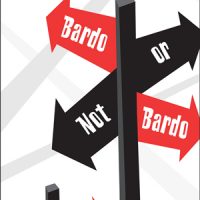
BARDO OR NOT BARDO, a novel by Antoine Volodine, reviewed by Amada Klute
Take the existential universe of Jean-Paul Sartre and pull his pants down around his ankles—this is the paradoxical narrative met with in French comedic novelist Antoine Volodine’s Bardo or Not Bardo. Volodine’s blunt, absurdist style illustrates a marriage between the profound and the comedic, using humor as a weapon to further investigate humanity’s most unanswerable questions ...

THE GERMAN GIRL, a novel by Armando Lucas Correa, reviewed by Kellie Carle
The German Girl permits readers to enter the minds of two 12-year-old girls as their lives are shaped by the tragedies of the SS St. Louis and 9/11. Correa expertly combines fact with fiction, as he constructs and then deconstructs the lives of two young girls. He also illustrates the importance a family’s history and the need to pass down history through the generations. The story of the contemporary girl, Anna, is imbedded (as is her name) in Hannah’s and though this is the conceit of the novel, it is also a weakness ...
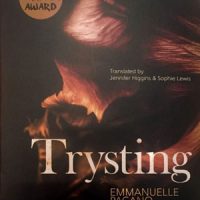
TRYSTING, fiction by Emmanuelle Pagano, reviewed by Rachel R. Taube
Emmanuelle Pagano’s Trysting is an intimate romance among hundreds. This book of fictional fragments, each in the first person, features character after character—most of indeterminate gender, age, and history—falling in and out of love. The self-contained pieces range from one sentence meditations to several hundred word flash fictions. The shortest of these could be writing prompts, while others read as prose poems. Reading Trysting can, in fact, be like reading a book of poetry, and it benefits from slow, thoughtful study. You could linger over any one piece, reread it and taste the rhythm, the carefully chosen words ...
FAMILY LEXICON, a novel by Natalia Ginzburg, translated by Jenny McPhee, reviewed by Robert Sorrell
Now in a new translation by Jenny McPhee (and with a new English title), Family Lexicon is Natalia Ginzburg’s Strega Prize winning memoir/novel of life in Italy before, during, and after World War II, Lessico famigliare, first published in 1963. Ginzburg is known mainly in this country for being a “writer’s writer,” a phrase which is often used to compensate for an author’s lack of fame. But in Ginzburg’s case, perhaps there’s a bit more to it; her essays are often assigned on writing workshop syllabi alongside favorites like Joan Didion, James Baldwin, and George Orwell. A quick Internet search ...

ATLANTIC HOTEL, a novel by João Gilberto Noll, reviewed by Robert Sorrell
“Love. Call me Love, the Word Incarnate.” This is the closest that readers get to a name for the protagonist and narrator of João Gilberto Noll’s strange little book, Atlantic Hotel, recently translated into English by Adam Morris. The novel is set in Brazil in the 1980s, and over the course of the book, the unnamed narrator embarks on a beguiling and pointless quest through the country. At different points he will seem to be—or perhaps will be—an actor, a priest, an alcoholic, an invalid. Along the way, Noll will shade his experiences with touches of Don Quixote and Odysseus, ...

WAYWARD HEROES, a novel by Halldór Laxness, reviewed by Tyson Duffy
Certain great writers fade from the American memory like condensation from a windowpane. The Icelandic novelist Halldor Laxness—he was once all the rage here—is one. He was considered something of an upstart, a genius, a social novelist, a fellow traveler of Upton Sinclair and Bertolt Brecht, and he often journeyed between Europe and America. A Marxist-Stalinist who was very critical of America, he was once important enough to attract the personal ire of J. Edgar Hoover at the FBI, who worked hard to impoverish Laxness by attempting to confiscate profits from his U.S. book sales, which were considerable ...
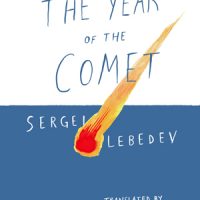
THE YEAR OF THE COMET, a novel by Sergei Lebedev, reviewed by Christina Tang-Bernas
The unnamed narrator of The Year of the Comet is born the moment an earthquake strikes Moscow. “The earthquake was my first impression of being: the world was revealed to me as instability, shakiness, the wobbliness of foundations.” Therefore, he observes, “My feelings, my ability to feel, were fashioned by that underground blow. I had trouble understanding anything to do with stability, immutability, and firmness, even though I wanted those states I could not achieve; disharmony was closer and more understandable than harmony.” ...
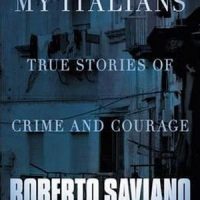
MY ITALIANS: True Stories of Crime and Courage, essays by Roberto Saviano, reviewed by Jeanne Bonner
The essay collection My Italians: True Stories of Crime and Courage, the provocateur Robert Saviano’s newest nonfiction work, is a startling condemnation of contemporary Italian life. For about a decade, Saviano’s one-man campaign against organized crime in Naples has made him famous across Italy. But he’s little known in the U.S., or he was at least until recently when a TV adaptation of his 2007 bestseller, Gomorrah, about the crime syndicate, la Camorra, began airing on the Sundance Channel (Italian director Matteo Garrone also made a 2008 film by the same name). Yet Saviano’s expertise on the malavita and how ...
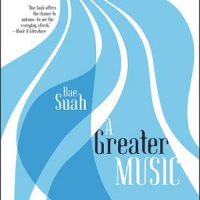
A GREATER MUSIC, a novel by Bae Suah, translated by Deborah Smith and reviewed by Justin Goodman
Bae Suah’s newest English-translated work, A Greater Music, describes the Austrian composer Franz Schubert as “a short, fat, shy myopic.” As brutal as this description is of a man who unhappily died before his 32nd year, it seems altogether different in tone when used to describe Bae’s novel itself. Filled with observatory indifference and an almost disembodied airiness, the novel comes across particularly as commentary, and as particularly rebellious. But what’s striking about A Greater Music is that it treats the work of Schubert above the man, treats the novel above the social, giving grandeur to otherwise short, fat, shy ...
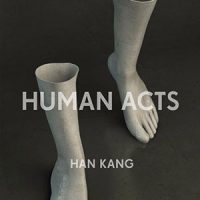
HUMAN ACTS, a novel by Han Kang, translated by Deborah Smith, reviewed by William Morris
First published in South Korea in 2014, Han Kang’s new novel Human Acts is now available for the first time in the United States. American readers first encountered Kang in 2016, with the translation of her 2007 novel The Vegetarian. This strange, dark, poetic novel, about a woman who decides to stop eating meat after having a horrific nightmare, was met with great acclaim. Translated by Deborah Smith, The Vegetarian went on to win the 2016 Man Booker International Prize. While Human Acts is a rich, powerful novel in its own right, and should be read independently of The Vegetarian, ...
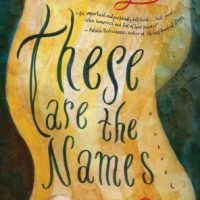
THESE ARE THE NAMES, a novel by Tommy Wieringa reviewed by Robert Sorrell
The hero–or perhaps I should say anti-hero–of Dutch author Tommy Wieringa’s new novel, These Are the Names is a 53-year-old police chief named Pontus Beg. Beg lives in a fictional border town called Michailopol, a city ailing in post-Soviet corruption and aimless malaise. Beg has “set up his life as a barrier against pain and discomfort,” Wieringa writes. “Suppressing chaos: washing dishes, maintaining order. What did it matter that one day looked so much like the other that he could not recall a single one; he keeps to the middle equidistant from both bottom and top.” ...

THE YOUNG BRIDE, a novel by Alessandro Baricco, reviewed by Melanie Erspamer
The author of the novel, Alessandro Baricco, a popular Italian writer, director and performer, suggests that a world based around logic and sense ultimately will stifle us. It is in fact, what the narrator of the main story, the “author” (easy to conflate with Baricco, though we shouldn’t), desires to escape from. He does so by running to fantasy: a place gleefully empty of logic or sense. However this is not to suggest that it is a place of chaos or anarchy—in fact quite the opposite. Fantasy rather offers refuge from the chaos of everyday life through its own simple ...
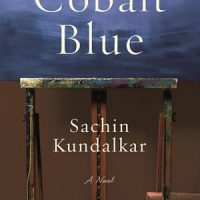
COBALT BLUE, a novel by Sachin Kundalkar, reviewed by Nokware Knight
Tanay is a young, closeted queer man trying to work through an internal rut by living for the company of and validation from others. As Tanay befriends an out-of-towner renting a room in his family’s home, he finds himself in awe of the Guest’s ability to thrive in solitude, to fully embrace his mood of the moment, to being in a class of “men who lived their own idiosyncrasies” (the house guest is unnamed in the novel, but for the sake of clarity in this review I call him the Guest). It’s enough to gradually wrestle Tanay out of his ...
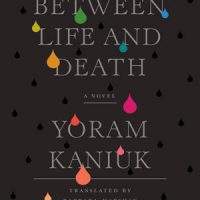
BETWEEN LIFE AND DEATH, a novel by Yoram Kaniuk, reviewed by David Grandouiller
Yoram Kaniuk, an Israeli novelist who died in 2013, was the kind of man who tells jokes as he's dying in the hospital, even when he has no voice, when there's a respirator thrust through an incision in his chest. His humor is at times bitter, biting like Sholem Aleichem's pogrom narratives, descending into sullen anti-prayers: “cancer, like Hitler...is a messenger of the Lord.” In this respect, Kaniuk's Between Life and Death, published this year in English, probably most closely resembles Christopher Hitchens' Mortality. A sense of the meaninglessness in so much of life, of banality in death, pervades both ...
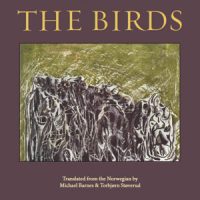
THE BIRDS, a novel by Tarjei Vesaas, reviewed by Melanie Erspamer
Had The Birds been written from the perspective of another character other than Mattis, a dim-witted near forty-year old, it probably would have had a different title—The Lumberjack, maybe, or some other word that references one of the major events in the novel. But that’s the point: the perspective, usually in third person but sometimes slipping into first person, is Mattis’ and thus the story is his. Although often the characters in a book share the same events, they do not share the same story; for that, as Norwegian author Tarjei Vesaas shows brilliantly in this moving novel, depends on ...
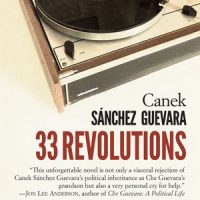
33 REVOLUTIONS, a novel by Canek Sánchez Guevara, reviewed by Nathaniel Popkin
Canek Sánchez Guevara’s 33 Revolutions is a prayer of a novel with a single liturgical refrain and a retort (of a kind) to the giddiness emitting from the American-Cuban travelsphere. Not since Reinaldo Arenas has a Cuban literary voice arrived on American shores with such beaten madness, and sense of personal desperation. Sánchez Guevara, who died last year at age 40, was the eldest grandson of revolutionary Ernesto “Che” Guevara. His mother, Hilda Guevara Gaesa, was Che’s oldest child; Hilda’s mother (also Hilda) introduced Che to the Castro brothers in the mid-1950s. (It’s worth remembering that the American literary public ...

THE SEVEN MADMEN, a novel by Roberto Arlt reviewed by Jacqueline Kharouf
Madness is synonymous with insanity, but to be “mad” one doesn’t necessarily go crazy. One might be mad at society, a world of socially imposed rules that stifle the imagination or measure people according to economic usefulness. Rage against a world in which a multicultural, mostly impoverished majority are controlled by a corrupt, wealthy minority could be defined as a type of “madness.” In such a state, the individual’s warped mind drives him to fantastical plans for revenge, deep wells of anguish or panic, brothel-filled nights, petty crimes, thoughts of suicide, kidnapping, and imagined love affairs ...

ON THE EDGE, a novel by Rafael Chirbes, reviewed by David Grandouiller
Regarding the difficulty of starting a novel, Umberto Eco writes, in the appendices to The Name of the Rose, “...there is an Indian proverb that goes, 'Sit on the bank of a river and wait; your enemy's corpse will soon float by.' And what if a corpse were to come down the stream–since this possibility is inherent in an intertextual area like a river?” In On The Edge, Spanish novelist Rafael Chirbes, who died last year, activates this idea. His corpse appears in the first pages, in the mud of a lagoon bank, under the feet of a fisherman, in ...
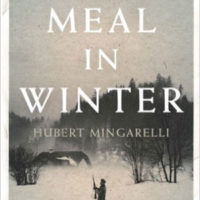
A MEAL IN WINTER by Hubert Mingarelli reviewed by Jeanne Bonner
A Meal in Winter by French author Hubert Mingarelli is a subtle book that quietly but methodically stalks the reader’s sympathies. It does so through a beautiful, spare prose style that begins with the first line: “They had rung the iron gong outside, and it was still echoing, at first for real in the courtyard, and then, for a longer time, inside our heads.” This is lovely writing (deftly rendered from the French by translator Sam Taylor, himself a novelist)—yet a bit ominous, like something that can’t be escaped. Later, setting the scene for the winter’s walk that takes up ...
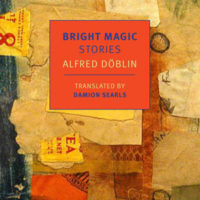
BRIGHT MAGIC: Stories by Alfred Döblin reviewed by KC Mead-Brewer
Bright Magic—a powerful concoction of black humor, harsh beauty, and dark fabulism—marks Alfred Döblin’s first collection ever to be translated into English (here by Damion Searls, a master of his craft who’s also translated the works of Proust and Rilke). Döblin (1878–1957), now a classic of German literature, was a pioneer of expressionist writing as well as a respected neurologist and army doctor. His short stories show a tremendous bravery of form and a willingness to experiment with things that today would be called flash and micro fiction as early as the 1910s. He also demonstrates a deep desire to ...
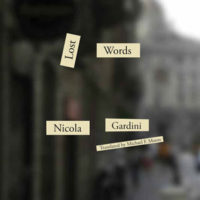
LOST WORDS, a novel by Nicola Gardini, reviewed by Claire Rudy Foster
What is experienced and what is retained can be wildly disparate; a revolution is distilled to a single detail, as Nicola Gardini reveals in the lovely novel Lost Words. Gardini explores the cultural and political revolution of 1970s Italy through the eyes of a thirteen-year-old boy. Chino—his given name is Luca—is a doorwoman's son in a working-class apartment building on the unfashionable side of Milan. “The doorwoman was not to be away from her post or distracted for a single instant,” Gardini explains. “If something required her to be away from her post, like taking out the trash, then her ...
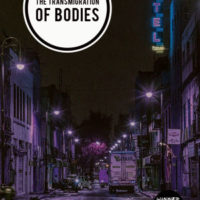
THE TRANSMIGRATION OF BODIES, a novel by Yuri Herrera, reviewed by Claire Rudy Foster
There’s something about summer heat that pounds the world into a flat, dusty slab. Your mouth dries out, and your brain loses its moisture and turns to lizardy thoughts instead. Compassion? It’s in short supply. “For now, these hot days, is the mad blood stirring,” Shakespeare said. Yuri Herrera’s short novel The Transmigration of Bodies is all blood and madness, a noir fantasy set against a hard-baked Mexican landscape ...
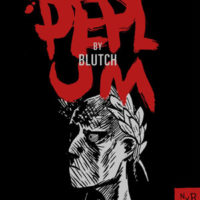
PEPLUM, a graphic narrative by Blutch, reviewed by Helen Chazan
The French cartoonist Blutch is known for creating beautifully illustrated graphic novels in response to great works of art and literature, and Peplum is one of his finest. The comic is a postmodern refashioning of Petronius’s mid-first century proto-novel The Satyricon, which ditches the original's gluttonous decadence under Nero’s reign in favor of the chaotic end of the Late Roman Republic ...
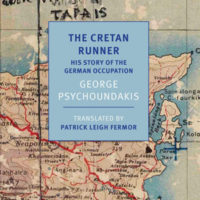
The Cretan Runner by George Psychoundakis and The Cowshed by Ji Xianlin, two memoirs reviewed by Beth Johnston
Over the years, I’ve consumed dozens of memoirs of hardship. I’ve accumulated shelves full of first-person accounts of war, revolution, genocide, and slavery, and developed a sideline collection of journeys that end in failure or death. These accounts of people swept up in forces far larger than they are comfort me because their problems dwarf everyday concerns like workday traffic or messy kitchen sinks. Their perspective reminds me that much of human history has been dark and difficult, and that in the face of those difficulties, our only choice is whether to act bravely or poorly. These stories also do ...
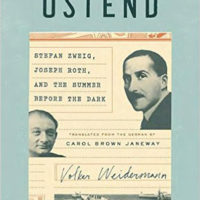
OSTEND: STEFAN ZWEIG, JOSEPH ROTH, AND THE SUMMER BEFORE THE DARK, nonfiction by Volker Weidermann, reviewed by Michelle Fost
Volker Weidermann’s Ostend gives us the stories of writers Joseph Roth and Stefan Zweig, along with an ensemble of friends, coming for summer holiday to a favorite Belgian beach resort. The style is clipped and brief. History, dark fairy tale, friendship, fleeting joy, literary enchantment, dissipation, destruction, exile. Ostend reads as a time capsule that Weidermann has sorted through for us, and organized. It’s 1936, and the holiday begins like a David Hockney print, with an inviting surface of sea and sun and wide blue sky. But as we make our way through Weidermann’s collections of scenes from the period, ...
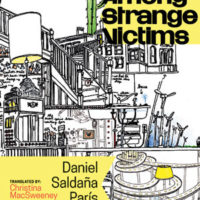
AMONG STRANGE VICTIMS, a novel by Daniel Saldaña París, reviewed by Lillian Brown
Daniel Saldaña París’s Among Strange Victims, translated by Christina MacSweeney, immediately pulls the reader into its universe. It does so with such thorough and seamless skill that the reader becomes a victim of this strange, off-kilter world. While it’s initially easy to get lost trying to find the meaning, or premise in general, of the series of peculiar events that passes throughout the novel, the ride is worth the suspension of belief. What starts with a proposal in the form of a note, at first presumably left by a snarky, administrative coworker, becomes the catalyst in the marriage of Rodrigo ...
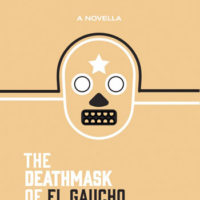
THE DEATHMASK OF EL GAUCHO, a novella by by Dan Mancilla, reviewed by Michael Chin
The Deathmask of El Gaucho functions cohesively for not only El Gaucho’s recurring appearances across the eight stories that shape the novella, but for the overriding themes introduced in this key story. Identity and the temporary nature of all things are at the heart of Mancilla’s work, and his fast-moving prose, suffused with wrestling lingo, such as suplexes and figure-four leg locks, bring the concepts to life in compulsively literary and subversive ways. El Gaucho is consumed with and by the identity he projects to the world. Mancilla uses Levesque and The Mask as a push-pull in the search for ...
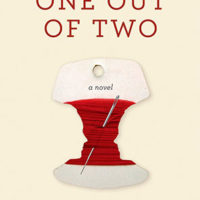
ONE OUT OF TWO, a novel By Daniel Sada, reviewed by Kim Steele
Daniel Sada’s One Out of Two is beautiful and bizarre. The novel, translated by the prolific Spanish-to-English translator, Katherine Silver, follows the Gamal sisters, furiously hard-working and identical middle-aged twins who work as seamstresses in the small town of Ocampo, Mexico. A sign hanging in their shop reads: “WE ARE BUSY PROFESSIONALS. RESTRICT YOUR CONVERSATION TO THE BUSINESS AT HAND. PLEASE DO NOT DISTURB US FOR NO REASON. SINCERELY: THE GAMAL SISTERS.” These women have no patience for the dilly-dallying or the gossip of their fellow townspeople. Instead, they are content—at least initially—to focus almost entirely on their work, “without ...

QUIET CREATURE ON THE CORNER, a novel by João Gilberto Noll, reviewed by KC Mead-Brewer
Though João Gilberto Noll has published nearly twenty books, Quiet Creature on the Corner is his first to be translated into English (by the talented Dr. Adam Morris). A five-time recipient of Brazil’s prestigious Prêmio Jabuti, Noll lives in Porto Alegre, which also happens to be the hometown of Quiet Creature’s narrator—an unemployed poet who finds himself in jail for raping his young neighbor, Mariana. But then, in a bizarre sequence of events, the poet is soon removed from jail and carted to the Almanova Clinic before then being moved yet again, this time to the mysterious household of Kurt, ...
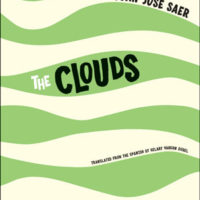
THE CLOUDS, a novel by Juan José Saer, reviewed by Justin Goodman
Proust creates a time and place that is both familiar and palpable. Saer does nothing of the sort: a fictional village with a dramatized horizon overcast with pervasive isolation. And yet, it’s an equally genuine exploration of the difficulties of talking about the past, “where no one ever goes” (an obviously ironic claim for a memoir). “The past is a foreign country,” in the famous opening sentence of L. P. Hartley’s The Go-Betweens, “they do things differently there.” The Clouds, beautifully, warns us there might not be a “there” to turn back to at all. For Saer, who stayed in ...
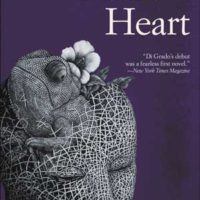
HOLLOW HEART, a novel by Viola Di Grado, reviewed by Jeanne Bonner
Viola Di Grado, an exciting new Italian literary voice, begins her novel Hollow Heart with this sentence: In 2011, the world ended: I killed myself. In fact, the book is narrated by a dead woman, Dorotea, who describes exactly how she killed herself and why (she drowned herself in the bathtub after a romantic breakup). Then Dorotea, a grad student living in Catania, Sicily, draws the reader into life after life with a dark, daring approach that attests to Di Grado’s penchant for innovation and invention ...
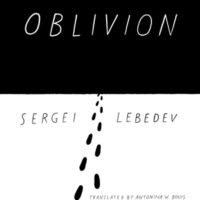
OBLIVION, a novel by Sergei Lebedev, reviewed by Jacqueline Kharouf
There are (supposedly) only two types of narratives. The first is the story of a person going on a journey. The second, a kind of inverse of the first, is the story of a stranger who comes to town. Whether or not you subscribe to this idea of only two narrative types (I, personally, do not), the journey narrative is one of the oldest and most human stories in all of literature. And because “the journey” is such a familiar kind of story, those novels, stories, or memoirs that take that motif and spin it in new and interesting directions ...

BLACK WINGS HAS MY ANGEL, a novel by Elliott Chaze, reviewed by Claire Rudy Foster
Elliott Chaze's novel Black Wings Has My Angel explores a brilliant but fatal partnership between two criminals bent on committing the perfect heist. “Tim Sunblade”—not his real name—escapes prison with nothing but his wits and a foolproof plan for a high-end robbery. His first week back in civilian life, he hires Virginia, a “ten-dollar tramp” who is not only more than what he paid for, but more than he bargained for. “What I wanted was a big stupid commercial blob of a woman; not a slender poised thing with skin the color of pearls melted in honey.” It isn't exactly ...

THE USES OF NATURE: DISTANT LIGHT by Antonio Moresco, HALF-EARTH by Edward O. Wilson, EVERYTHING I FOUND ON THE BEACH by Cynan Jones, and HILL by Jean...
The magic of discovery presses against the melancholy of the ruins. We are like a pair of naturalists who’ve discovered a lost link in the evolutionary chain, a last survivor of a species thought extinct. Evolutionary biologist Edward O. Wilson, in his new book, Half-Earth, calls this the “Lord God moment.” We find a wooden trunk with “A.H. Whetstone” and her address thick-inked by a nineteenth century hand, a plastic portable church organ keyboard in the springhouse, a carpet of rust growing on a Zenith turntable tangled in the weeds outside. Water rushes through the handsome stone channel of the ...
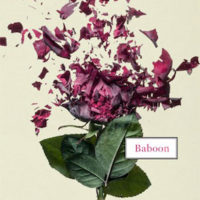
BABOON, short stories by Naja Marie Aidt reviewed by KC Mead-Brewer
Bestiality, child abuse, love, depression, heartbreak: these are among the many subjects brought to life in Naja Marie Aidt’s story collection, Baboon. Aidt, born in Greenland, a resident of Brooklyn, writes in the intersection, the most dangerous part of the street. Her stories stand boldly in the overlap of the ordinary and the absurd, between the wondrous and the vile. Brave and masterful, it’s no wonder Aidt has won both the Pen Literary Award and the Nordic Council Literature Prize ...
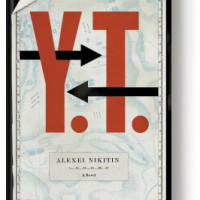
Y.T. by Alexei Nikitin reviewed by Justin Goodman
In one devastating visual from the 2011 British television miniseries The Promise, a veteran of the Israeli armed forces shows the unaware protagonist the tragedy of the border between Israel and Palestine. As the series progresses—switching between the present time and that time which the protagonist’s grandfather spent in Post-WWII Israel as a British peacekeeper—the pathos of this divide becomes mired in historical and social realities beyond obvious resolution. This quagmire of a divided land is a familiar theme for our time. Ukrainian physicist-cum-entrepreneur-cum-author Alexei Nikitin’s novel YT specifically reminds us of the case of his country, whose Maidan revolution ...
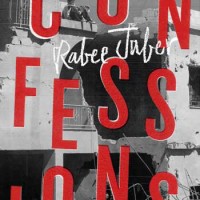
CONFESSIONS, a novel by Rabee Jaber reviewed by Justin Goodman
Virility—that most male of virtues—is the heart of American war literature; Stephen Crane’s Henry Fleming learns patriotism in the face of bullets, Kurt Vonnegut’s Billy Pilgrim explores his sexual energy amidst the Dresden Bombing, and Tim O’Brien’s Jimmy Cross is both distracted and driven by his hometown romance. There isn’t much virility in Maroun, the twitchy and vaguely traumatized narrator of Rabee Jabar’s Confessions, however. That’s probably attributable to the hydra that was Lebanon’s Civil War, around which the novel circles. And circles. And circles. And while the spiral, as it too often does, must end somewhere, you can be ...
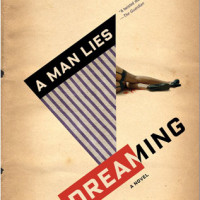
A MAN LIES DREAMING, a novel by Lavie Tidhar reviewed by Kylie Lee Baker
A MAN LIES DREAMING by Lavie Tidhar Melville House, 294 pages reviewed by Kylie Lee Baker When a novel opens the gates of Auschwitz, we expect to be moved by a tale we've heard a hundred times before; we expect to see Eli Wiesel searching for his father's emaciated body in the snow; we wait for Oskar Schindler to brush snow from his car and then realize that it is not snow but the ashes of burned bodies; above all, we anticipate a tale that unites us in our hatred of Nazi Germany and makes us weep for the injustices ...
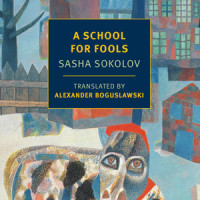
A SCHOOL FOR FOOLS, a novel by Sasha Sokolov reviewed by Kenna O’Rourke
A School for Fools does not immediately strike a modern reader as new or groundbreaking; its central premise is that the narrator, a male youth attending a school for the insane, is unreliable, territory well-tread by canonized authors and Intro-to-Fiction students alike. Perhaps the original novel by Sasha Sokolov preceded (or at least coincided with the origin of) the pervasive cliché of the asylum story, having first been published in 1976, but a reader of this new translation by Alexander Boguslawski can hardly be blamed for her skepticism after glancing at the book’s back-cover blurb. As the asylum motif becomes ...
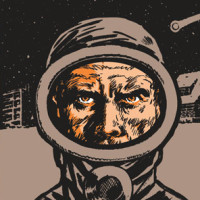
THE ETERNAUT, a graphic narrative by Héctor Germán Oesterheld reviewed by Natalie Pendergast
Deadly, beautiful “flakes” falling gently, the bodies they touch folding neatly to the ground. The light thrower, a powerful weapon that spotlights your death, as though stage fright wasn’t real enough. Sinister devices “plugged in” to the necks of robot men, long before The Matrix was even a twinkle in the Wachowski Brothers’ eye. All of these: combining to form layers of artful threats to your well-being, like different sections of an orchestra imbricated and inter-punctuated to form a unified song. This is the world we enter upon reading the Eternaut’s, also known as Juan Salvo’s, recounted story. More: hallucinogenic, ...
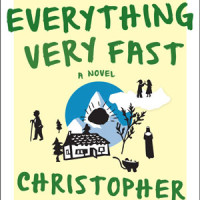
ALMOST EVERYTHING VERY FAST, a novel by Christopher Kloeble, reviewed by Elizabeth Mosier
Like the best coming-of-age stories, Christopher Kloeble’s Almost Everything Very Fast addresses universal concerns by asking personal questions. Nineteen-year-old Albert, raised in an orphanage, wants to know why he was given up by his anonymous mother and the father he knows: Frederick Arkadiusz Driajes, a grown man with a childlike mind. Albert has gotten nowhere by following the “Hansel and Gretel crumbs” he’s found in Fred’s attic: a photo of Fred with a red-haired woman, a few auburn hairs plucked from a comb. When Fred’s terminal illness imposes an urgent deadline, Albert visits him in Königsdorf one last time—but his ...

ENIGMAS, poems by Sor Juana Inés de la Cruz, reviewed by Justin Goodman
Sor Juana Inés de la Cruz remains Mexico’s greatest mystery. Born in 1651 out of wedlock and between social classes, intensely devoted to knowledge—having had discussions with Isaac Newton—and to Catholicism, she died forty-four years later despised by the male authorities of the church, but canonized as part of the literary godhead of the Spanish Golden Age. The haziness of these seeming contradictions evoked in the glorious 20th century Mexican poet, Octavio Paz, a sensation of the enigmatic which he captured in “Wind, Water, Stone”: “Each is another and no other.” It’s appropriate, then, to see Enigmas publication; it is ...
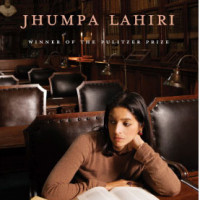
IN OTHER WORDS, essays by Jhumpa Lahiri, reviewed by Michelle Fost
In Other Words, a departure for Jhumpa Lahiri as she turns for the first time to memoir, took shape as weekly writing assignments—in Italian—that were published over six months in the Italian magazine Internazionale. Regular deadlines and the constraint of writing in a language she was still learning re-energized Lahiri. These very personal pieces are framed and contained self-portraits. They are fascinating, focused, and at times repetitive, and give the sense of a complex literary artist with a passion for language. Part of Lahiri’s accomplishment in In Other Words is her recovery of a way of working that is unspoiled ...

THE LAST WEYNFELDT, a novel by Martin Suter, reviewed by KC Mead-Brewer
THE LAST WEYNFELDT by Martin Suter translated by Steph Morris New Vessel Press, 302 pages reviewed by KC Mead-Brewer Martin Suter’s The Last Weynfeldt is an impressive work of intrigue and beauty. It sparks at the intersection of two very different people, Adrian Weynfeldt, mid-fifties, internationally renowned art expert, and Lorena, a shoplifting, small-time model who rips Adrian from his carefully crafted still life. Adrian earns his living by putting a “fair” price on beauty, authenticity, and originality. Lorena, often an anonymous commodity as a model, is also a thief, a woman who never pays society’s agreed upon price. And ...

A GIRL ON THE SHORE, a graphic narrative by Inio Asano, reviewed by Helen Chazan
A GIRL ON THE SHORE by Inio Asano Vertical Comics, 406 pages reviewed by Nathan Chazan In a 2013 interview, Inio Asano cites learning the phrase “chunibyo” as an inspiration for A Girl on the Shore. A Japanese meme, “chunibyo” translates roughly to “Eighth Grader Syndrome,” and describes an early adolescent’s tendency to aspire to and imitate the adult behaviors that she is too young to understand. The comic, a direct and emotionally intense story about two early adolescents who enter a sexual relationship, functions as a parable of “chunibyo,” exploring this youthful desire to seem more mature as well ...
